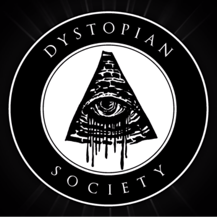Sign up for FlowVella
Sign up with FacebookAlready have an account? Sign in now
By registering you are agreeing to our
Terms of Service
Loading Flow

Dystopias: Definition and Characteristics
Simply, a dystopia is defined as a bad place, a place where no one would want to live, a place in which one's rights and freedoms would be gone, a place where the environment would be devastated (by a war, a climate crisis or a natural disaster). In fiction, like in George Orwell’s 1984, the bad place is more than a setting. The dystopia acts as a vehicle for an author's dramatic opinion about the way we live today. In this way, dystopian literature is usually crafted so that it acts as a warning to us - to stop what we are doing or face the consequences.
Generally a dystopia has widespread appeal to audiences because it plays
upon our deepest fears - a loss of life, liberty, and happiness and an
environment and living conditions that become hostile, dangerous and call
for fight for survival.
Characteristics of a Dystopian Society
o Propaganda is used to control the citizens of that society.
o Information, independent thought, freedom are restricted (also censored or manipulated).
o A figurehead or concept is worshipped by the citizens of the society.
o Citizens are perceived to be under constant surveillance (no privacy).
o Citizens must conform. Individuality and dissent are not allowed and severely punished.
o The natural world is banished and distrusted. It is often seen as hostile.
o Citizens have a fear of the outside world: it may be post-war or post-apocalyptic.

Nature and ecocritical topics are a significant aspect of dystopian novels, since they are supposed to remind the readers that to respect nature and live in harmony with it is an important feature of their lives and a key to happiness. They are also supposed to remind us that exploiting or manipulating nature or avoiding environmental issues will lead to the destruction of the world as they know it and the development of a dystopian world.